Measurement, Digital, Electrical Circuits, Electronics Laboratory
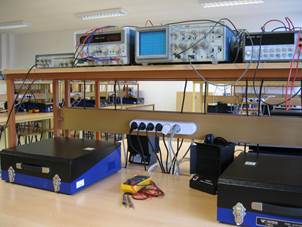
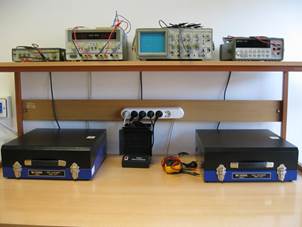
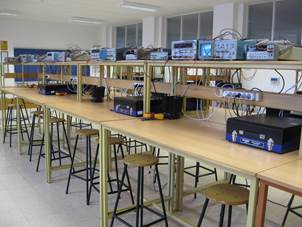
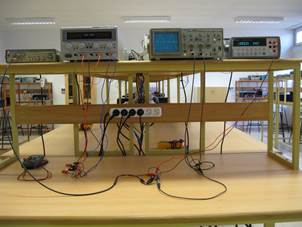
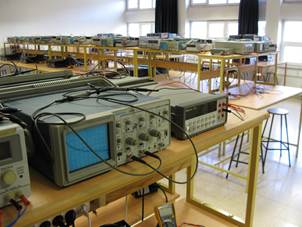
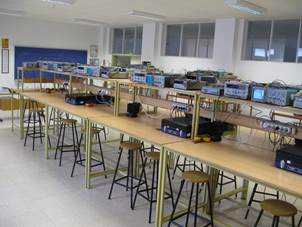
On their first year of education, students have the opportunity to learn measurement techniques and basic concepts of electrical and electronics engineering by doing experiments in this laboratory. In the following years, students perform the design and implementation of various circuits during the practical sessions of lectures on digital systems, electrical circuits, and electronics. In this laboratory, 25 branches are available for electrical and electronics circuit applications. In each branch, there are an oscilloscope, function generator, digital multimeter, DC power supply, digital experiment set. The courses performed in this laboratory, and course contents are listed below.
- Introduction to Electrical Engineering and Its Branches
- Charge, Current, Voltage, Power, Basic Electric Circuit Elements, Ohm's Law and Kirchhoff's Law
- Superposition
- Thevenin’s Theorem, Norton’s Theorem, Maximum Power Transfer
- Impedance and Admittance
- Complex Power
- Magnetically Coupled Circuits and Mutual Inductance
- Common Exercises
- Inductors and RL Circuits
- RLC Circuits
- Resonant Circuits
- Passive Filters
- Op-Amp Circuits
- Active Filters
- Voltage-to-Current/Current-to-Voltage Converters
- Comparator Circuits
- IC Card Design
- Introduction to Laboratory Equipment and Breadboarding
- Logic Gates and Applications
- Combinational Circuits and Design
- Arithmetic Logic Unit
- Introduction to Flip-Flops
- Synchronous Sequential Logic
- Memory Unit
- Operational Amplifier Characteristics
- Diode Characteristics
- Diode Applications
- BJT Biasing
- BJT Amplifiers
- BJT Switching Applications
- FET and FET Biasing
- FET Amplifiers


